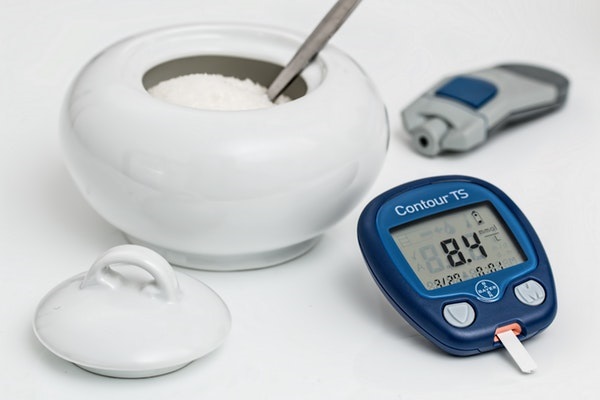What is Insulin and How Does it Cause Weight Gain?

Your body is made up of many parts that each have a unique function. The many activities of your different organs are elegantly coordinated by sophisticated communication systems in the body. For instance, your nervous system allows your brain to take in information about what is going on around you and helps you to make almost immediate responses to that information. Another system that coordinates activities in the body is your endocrine system, which allows communication among various organs using chemical messengers, or hormones.
Insulin is one of these chemical messengers. Specifically, it is produced by the pancreas and released into the bloodstream in response to changes in blood sugar levels. When you eat carbohydrates, these are broken down through the digestive system into smaller, simple sugars such as glucose. As glucose is absorbed into the blood and glucose levels rise, insulin is released. The main job of insulin is to signal to the cells of the body to take up the glucose so they can use it.
What is the role of insulin in weight gain?
When there is more energy (glucose) available than our body can use at once, we store it for later use. While this protected us from starvation in centuries past when food scarcity was common, it works to our detriment in this time of plenty. When glucose levels are high, our body first stores excess sugar in our muscles and liver the form of glycogen, which is a long chain of glucose molecules stuck together that can be easily broken apart later.
However, when there is excess glucose after our glycogen stores are full, our body converts the sugar into long-term energy storage, or fat. Thus, consumption of large amounts of carbohydrates triggers insulin release in response to the high sugar levels, which in turn causes our body to store fat! Insulin also blocks the breakdown of fat in our fat cells, effectively preventing weight loss.
Even worse, there is some research to suggest that eating high-glycemic index foods (those that raise the blood sugar rapidly) creates a rapid and significant response in the body that is similar to those seen to other addictive substances. The release of insulin in response to a quickly rising blood sugar creates a sharp drop in blood sugar, which in turn can cause cravings (Lennerz and Lennerz, 2018).
While insulin is an important signal molecule that helps our body to maintain energy stores, it can be dangerous in a society where foods that quickly raise our blood sugar are frequently consumed and readily available.
What can I do about it?
It is important to note that this sugar-insulin-fat storage pathway is not the only cause of obesity; it is only one of the many factors that may play a role in obesity. If this pathway resonates with you, however, the simplest and most effective way to avoid weight gain that occurs in response to insulin release after eating high glycemic index foods is to learn more about your food choices and avoid those that rapidly raise your blood sugar. For instance, highly processed, refined, and sugary foods are all high-glycemic-index food that will cause a spike in blood glucose and result in fat storage.
Regardless of which factors may play a role in your weight gain, you could benefit from medical treatment; if your BMI is higher than 30 or so, you may be a candidate for bariatric surgery. We offer an array of procedures that can result in significant weight loss; all of our patients are fully supported through dietary counseling to further improve their health.
We are here to help! Contact us at 773.327.6800 to schedule your consultation today.
Resources and References
Lennerz, B., and Lennerz, J. (2018). Food Addiction, High-Glycemic-Index Carbohydrates, and Obesity. Clinical Chemistry. 64(1): 64-71.
Society for Endocrinology, You and Your Hormones. Website. Insulin.
